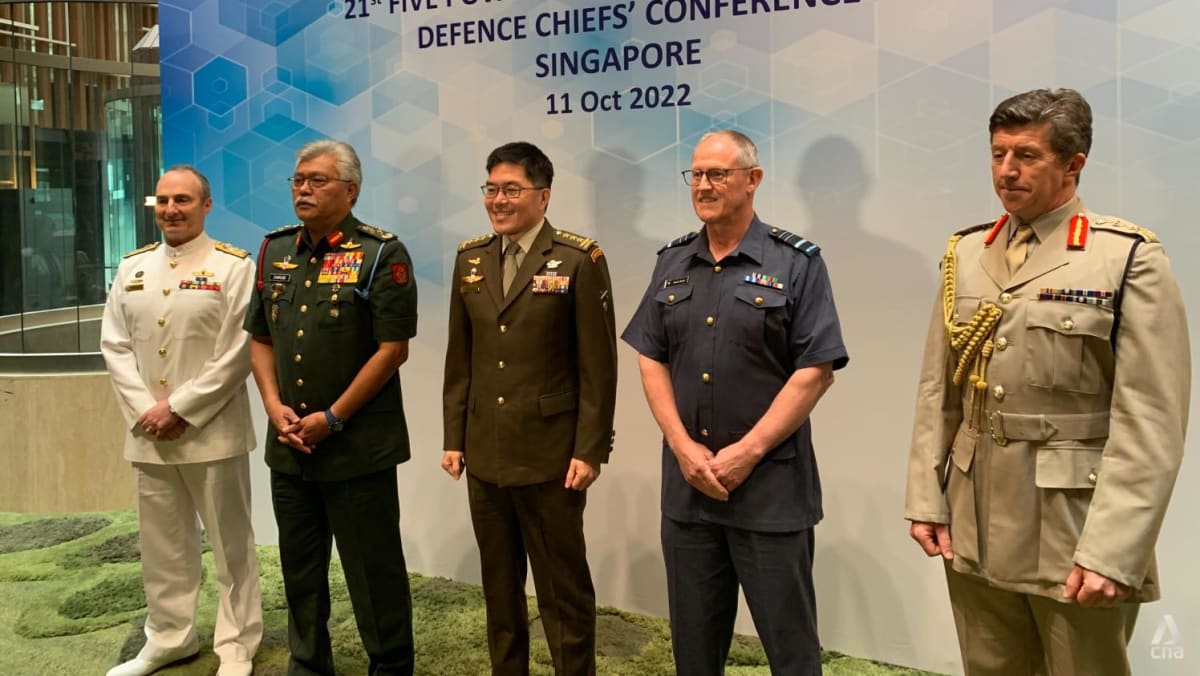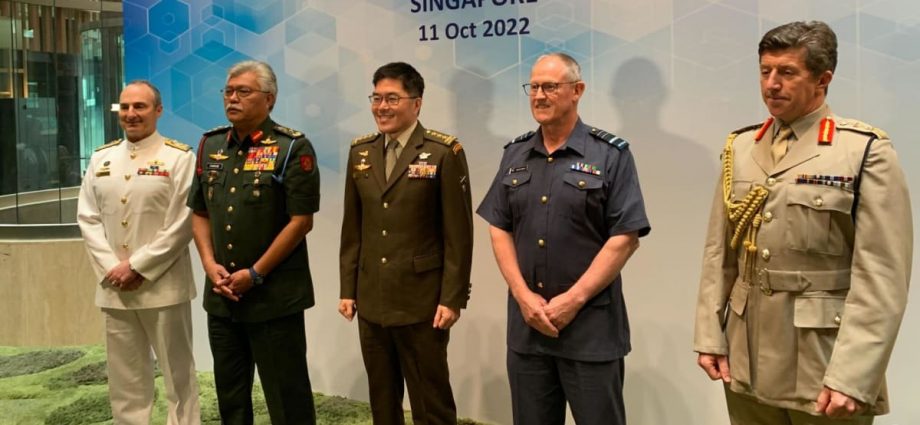
Singapore’s Chief of Defence Force Lieutenant-General (LG) Melvyn Ong, who chaired the conference, said the defence chiefs discussed counterterrorism, sea piracy, new threats and how Russia’s war in Ukraine contributed to supply chain disruptions.
“What all this just speaks to is the fact that the security environment that we face today is a lot more uncertain than before,” he said.
LG Ong said this means it is important to update the relevance of FPDA’s joint exercises even as conventional warfighting – including interoperability and proficiency of air, maritime and land forces – remains at the group’s core.
“In Exercise Suman Protector later on this year, we will include things like humanitarian assistance and disaster relief operations. We will also include supply chain disruptions. We will include non-combatant evacuation operations as part of the FPDA exercise serials,” he said.
The opening ceremony for Exercise Suman Protector, another FDPA exercise, will be held at Changi Naval Base on Wednesday. It will involve 261 personnel from the five countries and the FPDA’s Headquarters Integrated Area Defence System, which is based in Malaysia and protects the skies of Peninsular Malaysia and Singapore.
“The FPDA exercises will continue to be relevant and will continue to be updated according to the threats and the challenges that we face. And the chiefs affirmed the importance of the remit and the relevance of this arrangement,” LG Ong added.
The war in Ukraine has disrupted the export of millions of tonnes of grain, causing a shortage in feedstock and an increase in poultry prices, while the COVID-19 pandemic has reduced manpower, delayed ships and caused bottlenecks at major ports worldwide.
It is unclear how the FPDA militaries will simulate supply chain disruptions, but LG Ong said the group has updated the nature of its exercises over the years, including training and sharing information on unmanned aerial systems.
UK’s Vice Chief of the Defence Staff General Gwyn Jenkins said a “key part” of discussions at the conference was FPDA’s relevance in the modern era.
The group had said on the sidelines of the Shangri-La Dialogue in June that it was committed to ensuring the defence pact had “modern relevance” in the face of complex security challenges.
“It’s the significance of us conducting realistic exercises in order to ensure that we may remain relevant in this 51 years of a defensive pact, in an uncertain time in a region with its own tensions,” General Jenkins said.
When asked about the FPDA’s role in maintaining regional stability amid rising geopolitical tensions in the Taiwan Strait and the South China Sea, LG Ong said the FPDA – as a security arrangement – has helped member states understand each other and work together better.
“I think for all the tensions that we face, the ability to have dialogue, the ability to converse, the ability to see and the ability to operate with one another is invaluable,” he said.
“I think the FPDA will continue to provide that platform for us to work together and to be that ballast against the threats that we see in this region. And certainly it will be a part of the regional security architecture for this region.”
In a joint statement on Tuesday, the defence chiefs said the FPDA is a “constructive, transparent and peaceful arrangement” that has been an integral part of the regional security architecture for more than 50 years.
“As the FPDA continues to enhance the professional value of conventional exercises, it will also build capacity in other areas including counterterrorism, maritime security, humanitarian assistance and disaster relief, and cyber and information to keep pace with the evolving security challenges,” they said.

